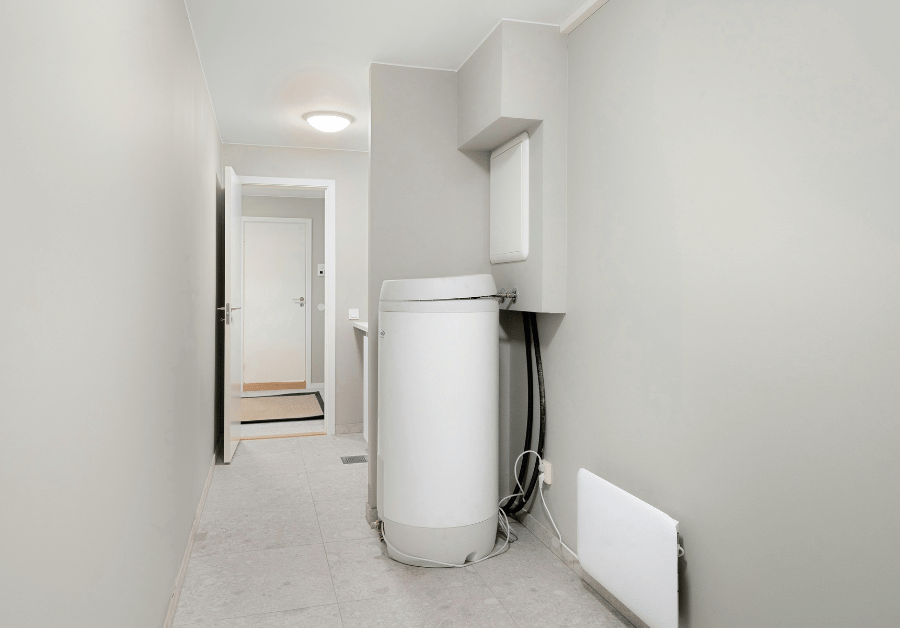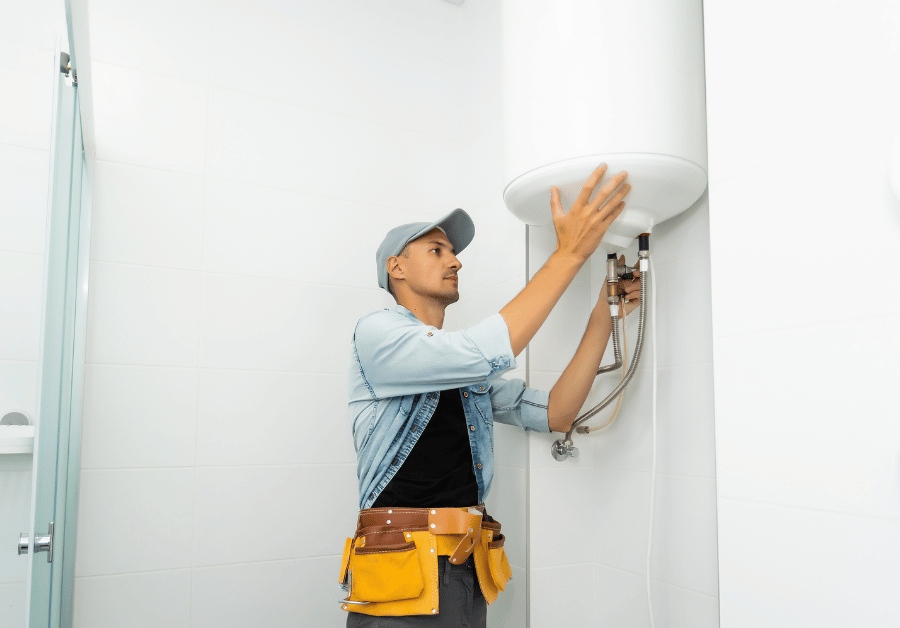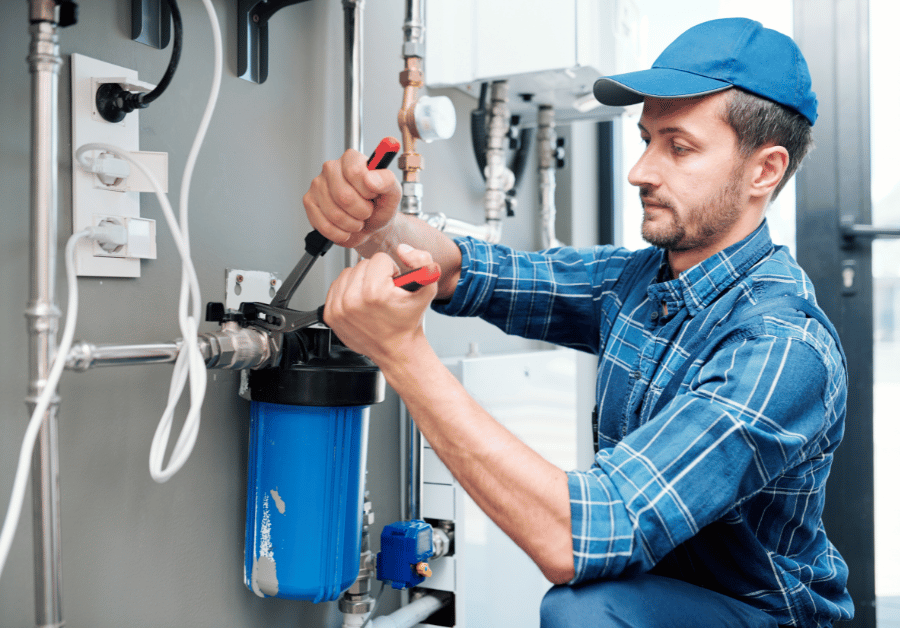Hot Water Installation: Your Complete Australian Guide
Ah, the simple pleasure of a hot shower! It's something we often take for granted until, suddenly, the warmth vanishes. Whether you're building a new home, upgrading an old system, or facing an unexpected cold shower crisis, understanding hot water installation is crucial. For homeowners across Australia, from the bustling streets of Sydney and Melbourne to the sunny coasts of Brisbane and Perth, the vibrant culture of Adelaide, and the cooler climate of Hobart, reliable hot water is a non-negotiable comfort. This comprehensive guide will walk you through everything you need to know about getting a new hot water system installed, ensuring you make the best choice for your home and budget.
Choosing the right hot water system and ensuring a professional hot water installation can significantly impact your energy bills, comfort, and the environmental footprint of your home. It's more than just getting hot water; it's about investing in an efficient, long-lasting solution that meets your family's needs.
Why Hot Water Installation Is a Critical Home Investment

Beyond the immediate comfort, a new hot water installation is a significant decision with long-term implications. An outdated or inefficient hot water heater can be a massive energy drain, silently inflating your utility bills. In Australia, where energy prices are a constant concern, upgrading to an energy-efficient system can lead to substantial savings over its lifespan. Moreover, a modern hot water system offers consistent performance, reducing the stress of unexpected breakdowns and costly repairs.
Consider the varying climates across Australia. In Hobart, a robust, efficient system is vital for colder winters, while in Brisbane or Perth, a solar hot water system might be incredibly cost-effective due to abundant sunshine. Understanding these regional nuances is key to a smart hot water installation decision.
Understanding Your Hot Water System Options in Australia
The Australian market offers a diverse range of hot water systems, each with its pros and cons. Your choice will depend on factors like your household size, budget, energy preferences, and environmental considerations. Let's dive into the main types you'll encounter during your hot water installation journey:
1. Electric Hot Water Systems
Electric hot water systems are a popular choice due to their lower upfront cost and relatively straightforward hot water installation. They work by heating water stored in an insulated tank using an electric element. Many homes, particularly older ones, in Sydney, Melbourne, and Adelaide, still rely on these systems.
- Pros: Affordable to purchase, easy to install, widely available.
- Cons: Can be expensive to run, especially if not on off-peak tariffs. Higher carbon footprint if electricity isn't from renewable sources.
- Best For: Smaller households, those with access to off-peak electricity tariffs, or as a cost-effective initial install.
2. Gas Hot Water Systems
Gas hot water systems are known for their efficiency and ability to provide continuous hot water, particularly the 'continuous flow hot water' models. They heat water using natural gas or LPG. Gas hot water is a common choice in areas with good gas infrastructure, like many suburbs in Brisbane, Sydney, and Melbourne.
- Storage Gas Heaters: Similar to electric, but use gas to heat a tank. Faster recovery times than electric storage systems.
- Continuous Flow (Tankless) Gas Hot Water Systems: Heat water on demand, meaning you never run out of hot water. Highly energy-efficient as they only heat water when needed. Excellent for larger families.
- Pros: Lower running costs than electric storage, continuous hot water (for tankless models), faster heating.
- Cons: Requires gas connection, higher upfront cost for continuous flow units, can be less environmentally friendly than solar or heat pump.
- Best For: Larger households, those wanting endless hot water, or homes already connected to natural gas.
3. Solar Hot Water Systems
Harnessing Australia's abundant sunshine, solar hot water systems use rooftop collectors to absorb solar energy and heat water, which is then stored in an insulated tank. They often come with an electric or gas booster for cloudy days or high demand.
- Pros: Significantly reduced running costs, excellent for the environment, eligible for government rebates (e.g., STCs - Small-scale Technology Certificates). Ideal for sun-drenched areas like Perth, Brisbane, and the Gold Coast.
- Cons: Higher upfront hot water installation cost, requires sufficient roof space and sunlight, performance can vary with weather.
- Best For: Environmentally conscious households, those looking for long-term savings, and homes in sunny regions.
4. Heat Pump Hot Water Systems
Heat pump hot water systems are an incredibly energy-efficient alternative, working much like a reverse refrigerator. They extract heat from the surrounding air and transfer it to the water in the storage tank. This makes them significantly more efficient than traditional electric hot water systems.
- Pros: Very energy-efficient (can reduce energy consumption by up to 70%), lower running costs than electric, environmentally friendly. Great for areas like South East Queensland.
- Cons: Higher upfront cost than electric, slower recovery rates than gas, can be affected by very cold ambient temperatures (though modern units perform well in colder climates like Hobart).
- Best For: Energy-conscious households seeking significant long-term savings, those wanting to reduce their carbon footprint without relying on direct sunlight.
Key Factors to Consider Before Hot Water Installation
Before you commit to a specific hot water system, consider these vital factors to ensure your hot water installation is a success:
- Household Size and Hot Water Demand: A single person needs far less hot water than a family of five. Accurately assessing your daily usage is crucial for sizing the system correctly.
- Energy Efficiency and Running Costs: Look beyond the upfront 'hot water system prices'. The true cost of a hot water heater includes its ongoing energy consumption. Compare energy ratings and estimated running costs. Heat pump hot water and solar hot water systems generally offer the lowest long-term running costs.
- Fuel Type Availability: Do you have natural gas connected to your property? Is your electricity supply reliable and affordable? This will heavily influence your choice.
- Space and Location: Some systems, like large storage tanks, require significant space. Continuous flow units are more compact. Consider indoor vs. outdoor installation.
- Climate: As mentioned, your local climate (e.g., the cold winters in Hobart vs. the tropical heat of Brisbane or the Sunshine Coast) can influence the efficiency of certain systems, particularly solar and heat pumps.
- Government Rebates and Incentives: Australia offers various incentives for energy-efficient upgrades, especially for solar and heat pump systems. Research what's available in your state (NSW, VIC, QLD, WA, SA, TAS).
- Budget: While a critical factor, remember to balance initial cost with long-term savings. Sometimes, a higher upfront investment in a more efficient system pays off quickly.
- Brand and Warranty: Opt for reputable brands like Rheem, Rinnai, and others that offer strong warranties on their units. This provides peace of mind for your 'hot water system replacement' or new install.
The Hot Water Installation Process: What to Expect

A professional hot water installation by a qualified plumber or gas fitter is essential. Here's a general overview of what the process involves:
Step 1: Initial Assessment and Quote
A licensed professional will visit your home to assess your current setup (if replacing an old system), discuss your hot water needs, and recommend the most suitable system type and size. This is where you'll get a detailed 'quote' for the supply and install. Platforms like Get 3 Quote make it easy to 'get quotes from professionals' by simply telling us what you need. You'll receive up to 3 detailed quotes from verified local plumbers or hot water services in your area, whether it's for a 'hot water system installation' in Sydney, a 'gas hot water systems' upgrade in Melbourne, or a 'heat pump hot water' install in Perth.
Step 2: Preparation and Safety Checks
Before any work begins, the area will be prepared, and all necessary safety checks will be performed. This includes ensuring proper ventilation for gas units and safe electrical connections for electric models. Compliance with Australian plumbing and electrical standards is paramount.
Step 3: Removal of Old Hot Water System (If Applicable)
If you're undertaking a 'hot water system replacement', the old unit will be safely disconnected and removed. This often involves draining the old tank and ensuring proper disposal, adhering to environmental regulations.
Step 4: New System Installation
This is where the magic happens! The new hot water system is expertly positioned and connected to your home's water supply, electricity, or gas lines. For gas hot water, this involves intricate 'plumbing and gas specialist' work. For solar hot water systems, collectors are mounted on the roof, and the tank is installed, often with a booster unit. Heat pump hot water installation involves connecting the unit and ensuring proper airflow.
Step 5: Testing and Commissioning
Once installed, the system is thoroughly tested to ensure it's functioning correctly, with no leaks, and that water is heating to the desired temperature. Pressure relief valves are checked, and all safety features are confirmed to be operational. This critical step ensures your 'hot water service' is running perfectly.
Step 6: Compliance and Certification
A professional hot water installation includes issuing compliance certificates (e.g., Certificate of Compliance for plumbing and gas work in states like Queensland or NSW). These documents confirm that the work has been carried out by licensed professionals and meets all relevant Australian standards and local council regulations.
DIY vs. Professional Hot Water Installation: Why Experts Are Essential
While some homeowners consider DIY for minor repairs, a full hot water installation is unequivocally a job for licensed professionals. Here's why:
- Safety First: Dealing with electricity, gas, and high-pressure water carries significant risks. Improper connections can lead to gas leaks, electrocution, scalding, or even explosions. Licensed plumbers and gas fitters have the training and equipment to perform the job safely.
- Regulatory Compliance: Hot water system installations are governed by strict Australian standards and local council regulations. Non-compliant work can lead to fines, voided insurance, and potentially dangerous situations. Only licensed professionals can issue the required compliance certificates.
- Warranty Protection: Most hot water system manufacturers require professional installation for their warranties to be valid. A DIY install could void your warranty, leaving you responsible for any future repairs or replacements.
- Efficiency and Longevity: Experts ensure your system is correctly sized, installed, and configured for optimal energy efficiency and maximum lifespan. This translates to lower running costs and fewer 'system repairs' down the line.
- Troubleshooting and Support: Should any issues arise after installation, a reputable 'hot water services' provider will offer support and 'repairs', ensuring your system continues to run smoothly. Companies like Get 3 Quote connect you with reliable plumbers who stand by their work.
When to Consider a Hot Water System Replacement
Knowing when to replace an old hot water system rather than just repairing it can save you money and headaches in the long run. Look out for these signs:
- Age of the System: Most hot water heaters have a lifespan of 10-15 years. If your unit is approaching or has passed this age, a 'hot water system replacement' is likely more economical than ongoing 'system repairs'.
- Frequent Breakdowns and Inconsistent Hot Water: If you're constantly calling for 'hot water service' or experiencing cold showers, it's a clear sign your system is failing.
- Rising Energy Bills: An old, inefficient unit can consume excessive energy, leading to surprisingly high 'hot water system prices' on your utility bills.
- Leaks or Rust: Visible leaks or rust around the tank or connections indicate internal corrosion, meaning the tank is nearing the end of its life.
- Strange Noises: Banging, rumbling, or popping noises can signal sediment build-up or other internal issues.
Maximising Your Hot Water System's Lifespan and Efficiency
Once your new hot water system is installed, a little care can go a long way in ensuring its longevity and efficiency:
- Regular Servicing: Schedule annual or bi-annual 'hot water services' with a professional plumber. This includes checking the anode (for storage tanks), flushing sediment, and inspecting connections.
- Temperature Settings: Set your thermostat to a safe and efficient temperature (around 50-60°C for most homes) to prevent scalding and save energy.
- Insulation: Insulating exposed hot water pipes can reduce heat loss, especially in colder climates like Hobart or during winter in Melbourne.
- Energy-Saving Habits: Shorten showers, use cold water for laundry when possible, and fix any leaky taps.
Hot Water Installation Costs in Australia
The 'hot water installation costs' can vary significantly based on several factors:
- Type of System: Electric storage units are generally the cheapest upfront, while solar hot water systems and heat pump hot water systems have higher initial 'prices'.
- System Size and Capacity: Larger tanks or higher flow rate continuous flow units cost more.
- Complexity of Installation: Replacing a like-for-like system is usually simpler than converting from electric to gas or installing a new solar system with roof work. Difficult access or extensive pipework modifications will increase costs.
- Location: 'Installation' costs can vary slightly between major cities like Sydney, Melbourne, Brisbane, Perth, Adelaide, and Hobart, reflecting local labour rates and supplier costs.
- Plumber's Fees: Different 'plumbers' or 'hot water services' providers will have varying rates. This is where using a platform like Get 3 Quote can help you 'compare quotes' and find the 'best' deal.
While it's hard to give exact 'hot water system prices' without a specific quote, expect to pay anywhere from a few hundred dollars for a basic electric system replacement to several thousand for a high-end solar or heat pump 'installation'. Remember, the cheapest option upfront isn't always the most cost-effective long term due to running 'costs'.
Local Considerations: Sydney, Melbourne, Perth, Brisbane, Adelaide, Hobart
Australia's diverse climate and infrastructure mean that 'hot water installation' considerations can vary by region:
- Sydney & Melbourne: Densely populated, good access to natural gas. Focus on energy efficiency due to higher electricity prices. Continuous flow hot water systems are popular.
- Brisbane & Gold Coast (South East Queensland): Abundant sunshine makes solar hot water and heat pump hot water systems very attractive. Gas hot water is also common.
- Perth: Strong solar potential. Water-wise considerations are important here, influencing choices towards efficient systems.
- Adelaide: Mix of gas and electric, with growing interest in solar and heat pumps due to energy costs.
- Hobart: Colder climate makes robust, efficient systems crucial. Heat pumps perform well here, as do well-insulated electric or gas storage units.
No matter where you are in Australia, a local expert will understand the specific regulations, climate challenges, and available incentives for your area, ensuring a compliant and efficient hot water installation.
Ready for Your New Hot Water Installation?
Choosing and installing the right hot water system is a significant decision for any Australian homeowner. From understanding the various 'water systems' available to navigating the 'hot water installation' process, it's clear that expert advice is invaluable. Don't compromise on comfort, efficiency, or safety.
Whether you're in Sydney, Melbourne, Perth, Brisbane, Adelaide, or Hobart, finding a reliable, professional plumber for your 'hot water installation' has never been easier. At Get 3 Quote, we take the guesswork out of finding trusted local professionals. Simply tell us what you need, and we'll connect you with up to 3 verified, local experts who can provide detailed quotes for your 'hot water system installation', 'hot water system replacement', or any 'hot water services' you require.
Get the best 'pricing' and 'quality' service for your home. Compare quotes, read 'customer reviews', and choose the 'best match' for your hot water needs today!
